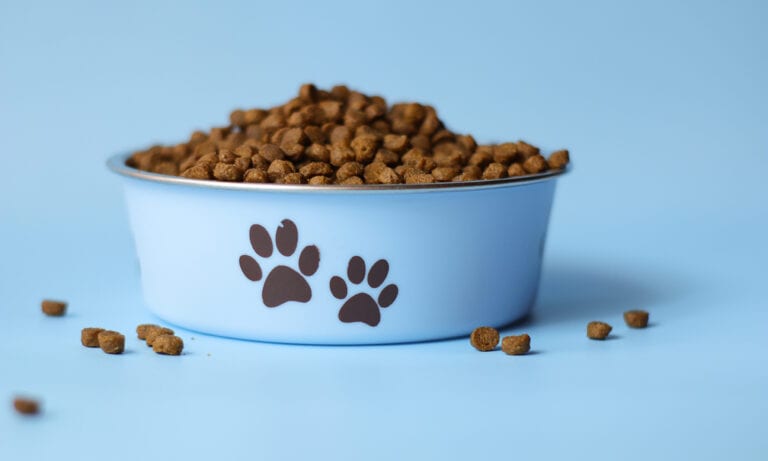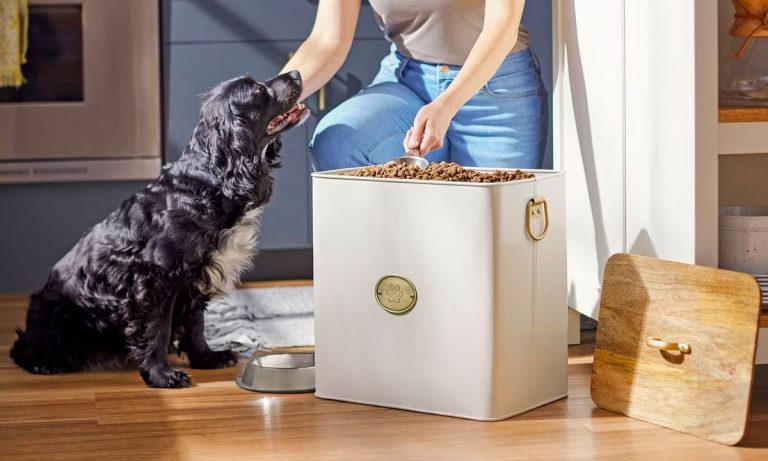At your pet’s regular checkup, your pooch is placed on the scale and—gulp—he gained five pounds since his last visit. Your vet gives you “that look” and tells you that your dog is starting to get older and that extra weight can make hip issues and other ailments even worse. Even as you blush and feel ashamed for sneaking your pet all those dog treats, your vet lets you know that your pet needs to go on a diet for the sake of his health.
Most pet owners have been there, and hearing your pet needs to lose a few pounds is never easy. Plus you want to feel like you can shower your dog with love in the form of treats and not deprive him—especially when he turns those sad eyes on you. However, maintaining a healthy weight is essential for your pet’s health. Those extra pounds on overweight dogs and cats can contribute to health issues including hip dysplasia, diabetes, osteoarthritis, high blood pressure and even some forms of cancer, and these ailments can affect his lifespan and overall happiness.
While we always recommended that you consult your pet’s veterinarian about the best weight management regimen for your pal, below are some of the most common approaches to pet weight loss:
1. Reduced-Calorie Foods
There is a broad range of diet pet foods on the market, such as Purina’s Pro Plan Adult Weight Management cat food. These sorts of foods can be helpful when you are putting your pet on a diet, as the portion sizes remain the same, but there are fewer calories per serving. Your pet will still feel full, without realizing they are getting less of what they’re used to consuming.
2. Treat Strategically
Treating with purpose can help with pet weight loss, too. Rather than giving your pet extra bones, chews or other snacks, set aside a small amount of their daily cat food allotment for use a cat treats. Place the portion in a plastic bag and use that as a reward for good behavior and training, rather than giving your pet high-calorie snacks.
3. Make it a Game
Make feeding time last longer to keep your pet engaged and sneak in exercise at the same time. For overweight dogs, fill up a classic Kong with a portion of his breakfast before you go to bed. Run water through it, then put it in the freezer overnight. In the morning, give your pet the Kong when you leave for work. He will ingest the same calories, but he will have to work at it to get the kibbles out. It will keep him occupied, keep him satisfied and all of the extra chasing and chewing may burn a few extra calories.
4. Increase Exercise
Just like with people, exercise is essential for both dogs and cats who need to lose weight. For overweight dogs, add 30-60 minutes a day of walking or engage in a high-energy game of fetch, and for cats, play games with a laser pointer, which can be a great way to burn off some energy and get exercise. Just a little extra exercise can go a long way in helping with your pet’s weight loss.
Maintaining a healthy weight is important for your buddy’s quality of life. By using these tips to manage his caloric intake and by increasing his daily activity, you can encourage gradual weight loss and keep your pet healthy and happy today and for the years ahead.
Share:












